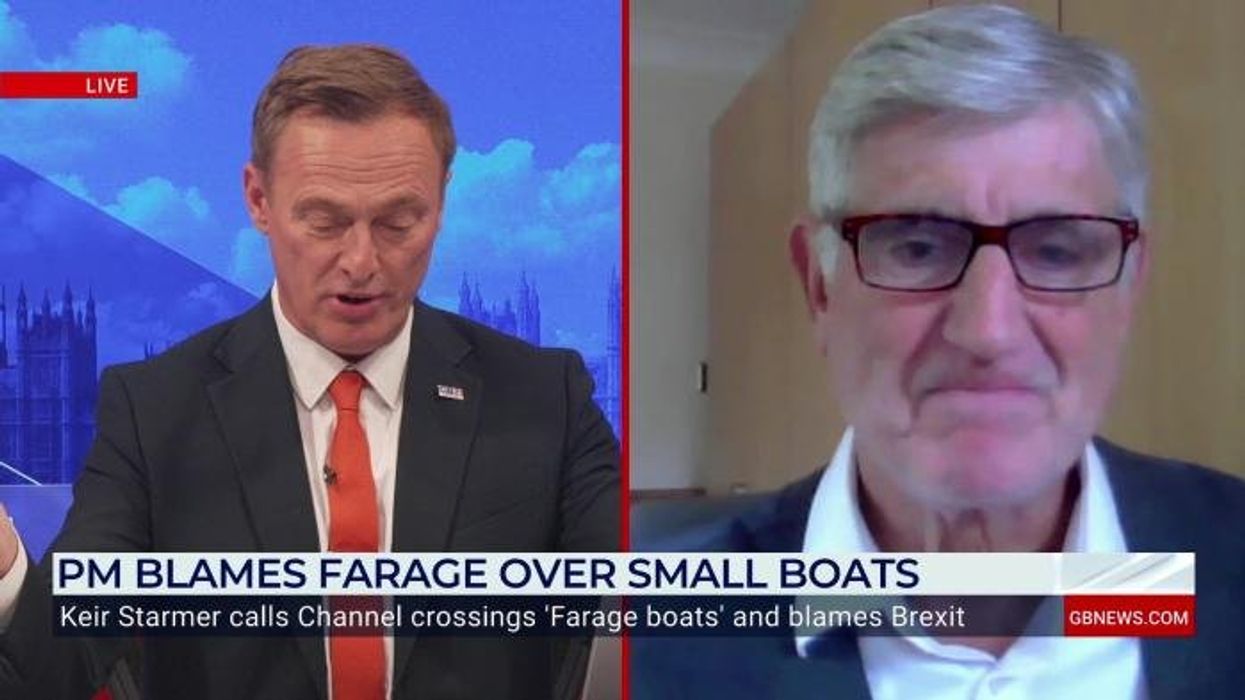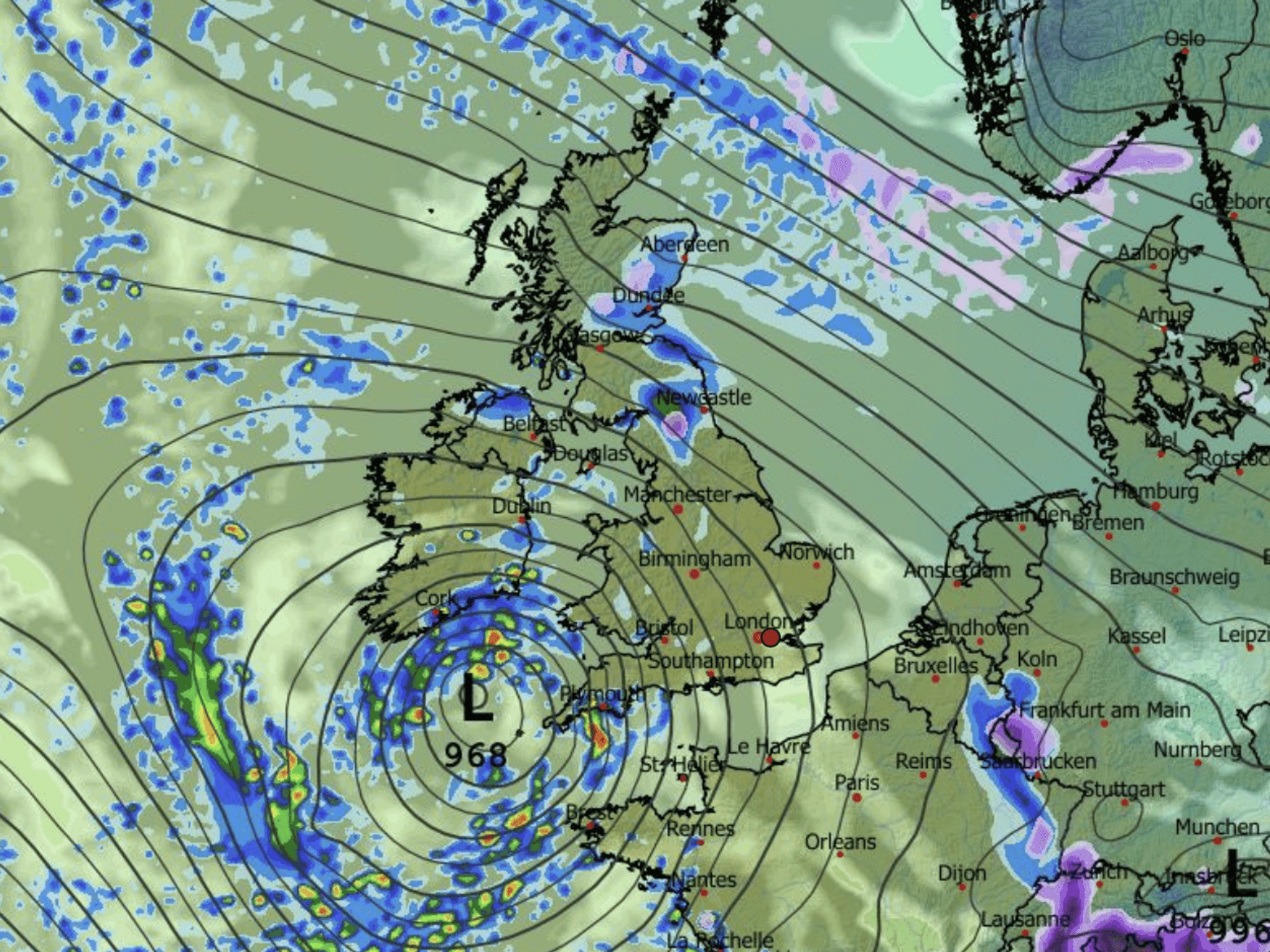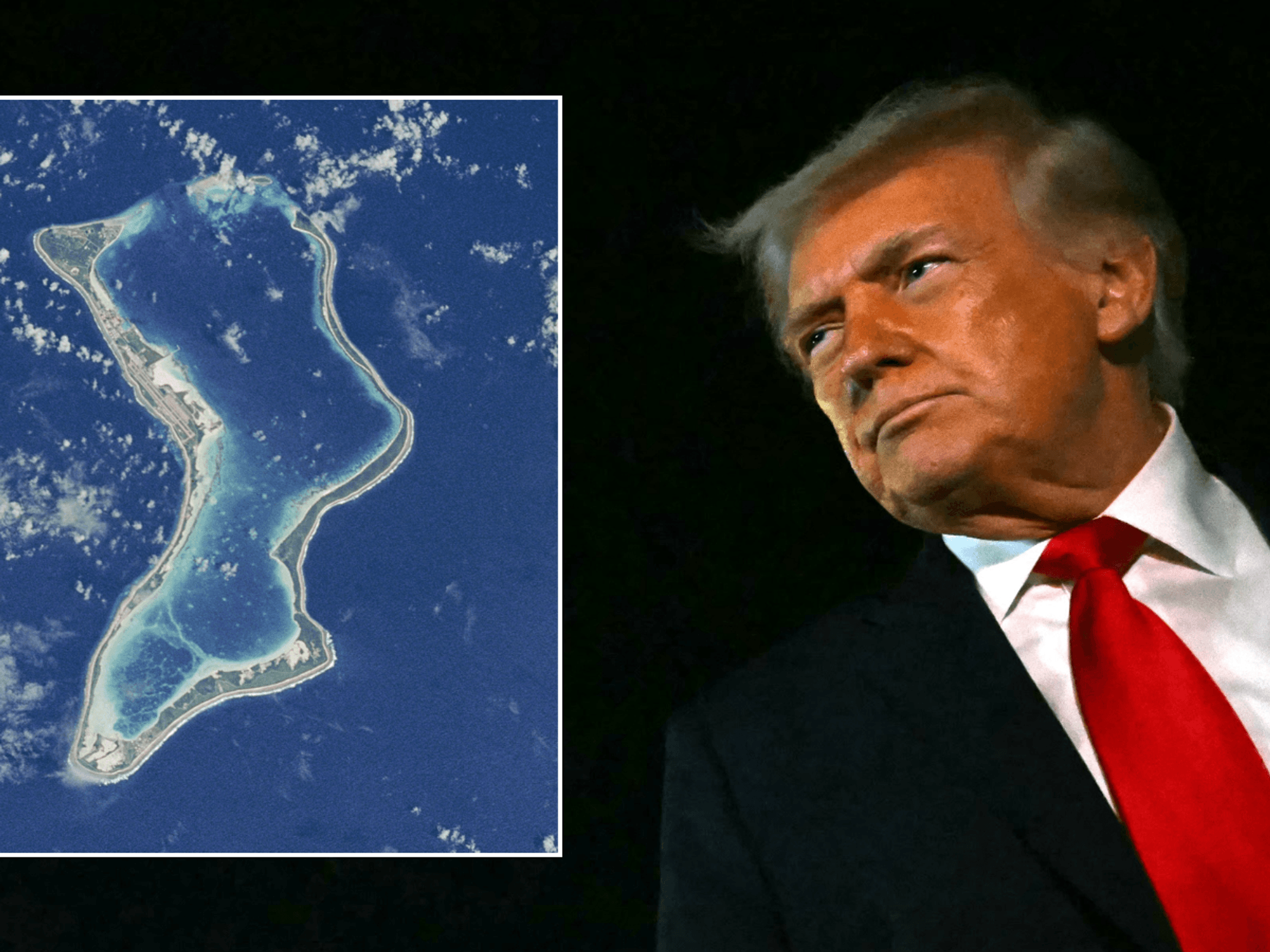Three SHOCK graphs expose France’s key role in Britain’s migrant chaos - and saddle Labour with another unwanted record

Bombshell analysis found that deportations of illegal migrants in Britain fell by 7.4 per cent per cent in Sir Keir Starmer's first year in power
Don't Miss
Most Read
Trending on GB News
Britain's migration crisis has been fuelled by France's failure to deport tens of thousands of illegal migrants, new analysis suggests.
The analysis, carried out by Facts4EU and Stand For Our Sovereignty, examined official data from British and French statistics agencies.
It found that despite having issued 132,750 deportation orders to illegal migrants during Sir Keir Starmer's first year in power, French authorities were able to effect 6,395 actual enforced returns to third countries, meaning either the migrant's home country or another one.
This represents just 4.8 per cent of the total.
TRENDING
Stories
Videos
Your Say
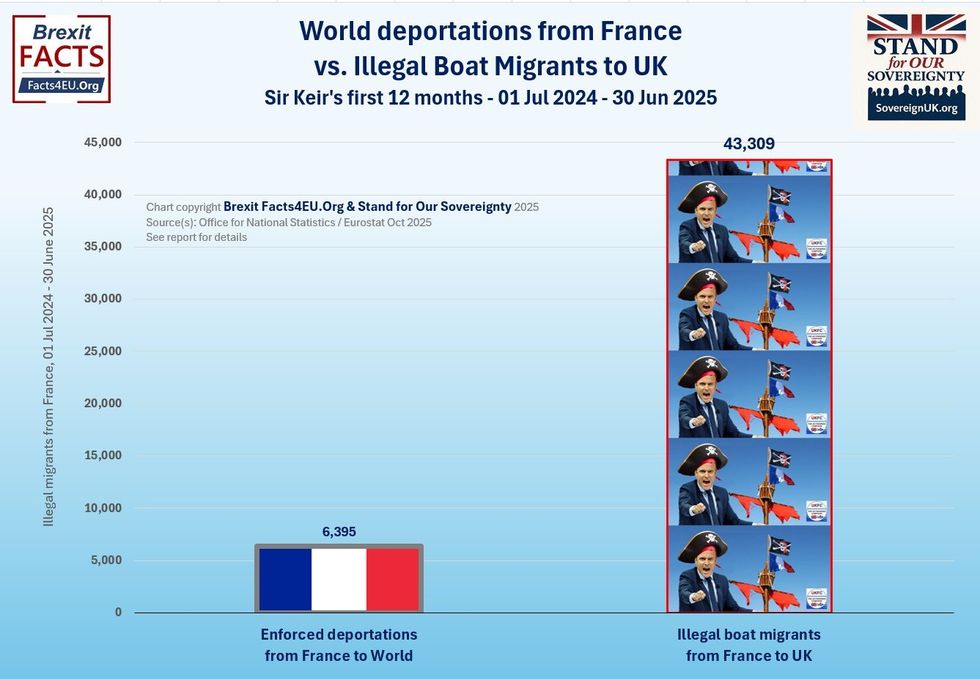
The report found that France was only able to effect 6,395 actual enforced returns to third countries during the 12 month period
|FACTS 4EU/STAND FOR OUR SOVEREIGNTY
In that same 12 month period, the report claims France was able to send – or allow to be sent – nearly seven times as many migrants across the ‘illegal channel’ to England as President Macron was able to deport to all other countries combined, via the legal channel of deportation.
The report further found that deportations of illegal boat migrants in Britain fell by 7.4 per cent per cent in Sir Keir's first year in power.
In the year ending June 2025, there were 2,330 returns of people who had arrived by small boat, which is 7.4 per cent fewer than the previous year.
Of the small boat returns in the latest year, 75 per cent were of Albanian nationalities, the analysis found.
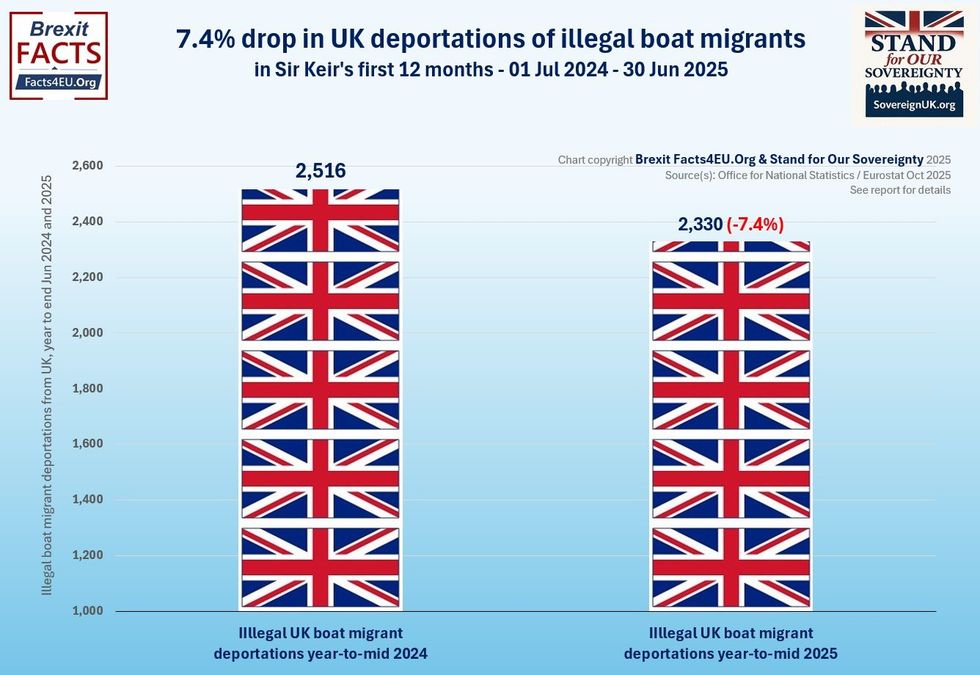
The report also found UK deportations of illegal boat migrants dropped in the first 12 months of Sir Keir being in power
|FACTS 4EU/STAND FOR OUR SOVEREIGNTY
Unlike in EU countries, the Home Office does not report on the number of migrants ordered to leave, but instead only on the number who were deported.
In the UK, Albanian nationals were the most common nationality of all enforced returns over the last four years and accounted for 28 per cent (2,562) in the latest 12 months, the report stated.
Enforced returns of other nationalities however have increased, with numbers of Romanians up 28 per cent (1,696), Brazilians up 90 per cent (861) and Indians having more than doubled (615) over the same period.
The analysis also found the majority of those subject to deportation orders in France between July 1, 2024, and June 30, 2025, were not forced to leave.
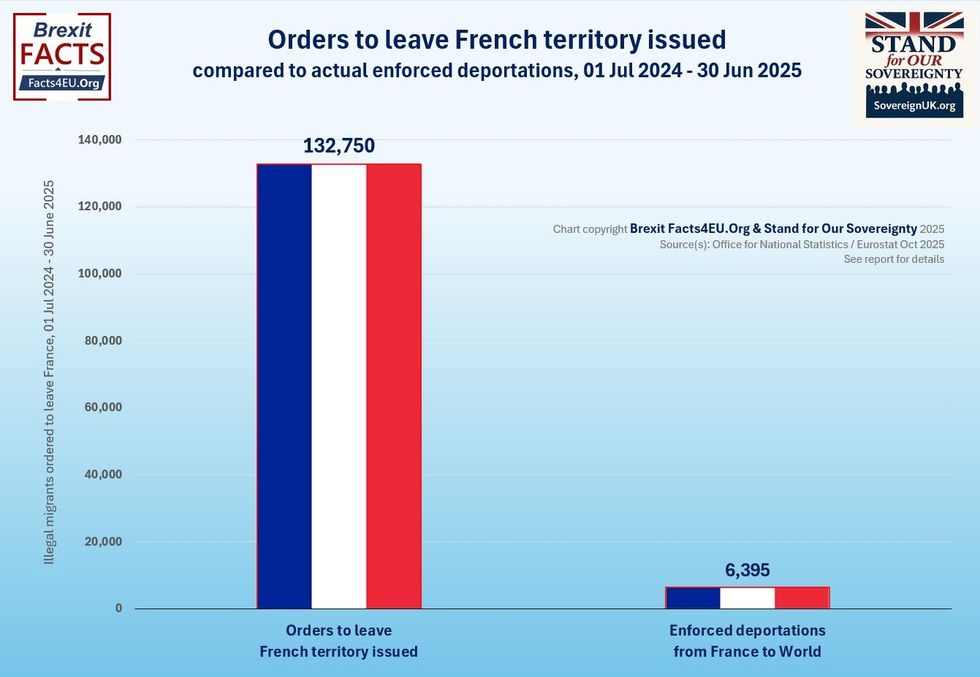
Despite having issued 132,750 deportation orders to illegal migrants, figures show France only enforced deportations of 6,395
|FACTS 4EU/STAND FOR OUR SOVEREIGNTY
How can a deportation be defined?
In France, deportations fall under what is called the Obligation de Quitter le Territoire Français (OQTF) – the Obligation to Leave French Territory.
In outline, the Prefect of Police of the region issues the notice to a migrant, which either gives 30 days’ notice to leave or it is of the immediate variety.
If 30 days’ notice is given, the migrant must leave in that time (with or without state assistance) or be placed in a detention camp.
As in the UK with asylum claims being rejected, the process is subject to legal challenge and is more complex than indicated above.
In particular, assuming the migrant does not voluntarily depart, the State must obtain a "consular pass" from their country of origin.
This document certifies the individual’s nationality and authorises their entry.
Without this pass, deportation cannot take place.
It is also the case that the EU’s "Dublin Agreement" requires the migrant to have any case for asylum to be heard in the EU country they first entered.
Questions have been raised about how well this system works when put into practice.
More From GB News


